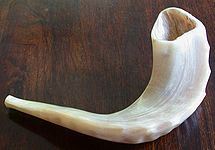  |
|
| |||||||||||||||
|
This Google Custom Search looks only in this website. 
About Using Phones and Other Devices with Rabbinical Approval
BS"D, Elul, 5778
There are certain individuals who received a hetter from respected rabbonim to use, for the sake of their livelihood, advanced technological devices which are properly protected through accepted supervision. This is after their issue was inspected in depth and with integrity as to the true need for this use. But sadly, sometimes these devices reach the hands of family members, children and acquaintances, who are drawn to them and stumble in many ways.
Heightened excitement was felt this past Monday by the yeshiva students of Nesivos Chochmah in Bayit veGan, Jerusalem, headed by HaRav Doniel Wolfson and HaRav Neuwirth with the visit of Rosh Yeshivas Slobodka, HaRav Dov Lando, to inaugurate the Elul semester. After an opening shiur beiyun attended by several hundreds of students in the subject being learned in Maseches Kesuvos, he delivered a strong message of chizuk on the proper comportment and stature of a yeshiva student.
Whoever attempts to describe the living conditions of the exiles of Yeshivas Mir in Shanghai will be unable to fathom how a yeshiva could have operated there at all. How could they have lived in such a steaming climate, studied, davened, ate and even slept?
* * *
From Our Archives
We Knew The Steipler Gaon, zt'l -- 23rd Av 5760, His Fifteenth Yahrtzeit
Compiled by Yated Ne'eman Staff
Part III
What Does The Steipler Say? -- Some Highlights of the Years of His Communal Leadership
The Value of a Word
by L. Jungerman
"You shall heed the issuance of your lips and you shall do . . . "
In Mishne Lamelech on the Rambam (chapter 10) a very interesting question is posed: We find mentioned in several places in the Torah vows made between different people to one another, even before the giving of the Torah which mandates that one must keep one's word. Both Avrohom and Yitzchok vowed faithfully to Avimelech. Eisov made a vow to Yaakov concerning the selling of his birthright. Eliezer made a vow to Avrohom that he would not take a wife for Yitzchok from the daughters of Canaan. The Mishne Lamelech wonders at the power which such vows have if the Torah had not yet been given and there was nothing to bind people, to obligate them to keep their words. We know that the ovos did keep the mitzvos even before the giving of the Torah, but what about Eisov? Why did Avimelech demand a vow of protection? And what was the significance of Pharaoh eliciting a vow from Yosef not to reveal to the people that he was fluent in one language more than he? Keeping one's promise is not one of the seven Noachide laws!
EARLIER EDITORIALS
A Mission to
Spread Daas Torah
Looking
for the Best in Yiddishkeit
The Immorality
of Palestinian Combatants and Noncombatants
|
||||||||||||||


